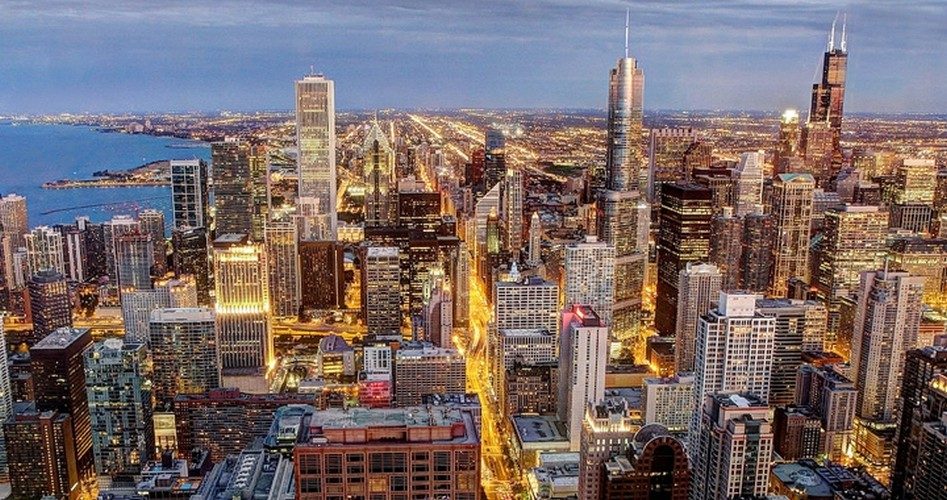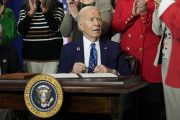
The city of Chicago, burdened with massive debt, is impounding innocent people’s cars and charging the owners thousands of dollars to get them back, according to Reason magazine.
When Mayor Rahm Emanuel assumed office in 2011, “the city was facing a $650 million annual budget gap, not to mention billions upon billions of dollars in unfunded public pension liabilities,” writes C. J. Ciaramella. Rather than address the underlying cause of the problem, namely overspending and overpromising, Emanuel chose to hike scores of taxes and fees. He also vastly expanded the number of offenses that could lead to vehicle impoundment with associated steep fines.
Chicago’s “aggressive vehicle impound program … impounds cars when the owner beats a criminal case or isn’t charged with a crime in the first place,” reports Ciaramella. “It impounds cars even when the owner isn’t even driving, like when a child is borrowing a parent’s car.” As a result, the city “fined motorists more than $17 million between March 2017 and March of this year for 31 different types of offenses,” and it “issued more vehicle violations per adult in 2016 than New York City or Los Angeles, raising $264 million in the process” and triggering other fines on the same vehicle owners.
Emanuel’s program of soaking Chicagoans has succeeded to some degree: The city’s deficit has fallen significantly, though it is expected to resume rising next year. But the program’s victims are hardly celebrating this temporary improvement in the city’s finances. Chicago leads the nation in Chapter 13 bankruptcy filings, many of which involve debt to the city.
As usual, the people hurt most by bigger government are the ones politicians such as Emanuel claim to care about most: the poor. A recent study by Chicago activist group Community Organizing and Family Issues found that 22 percent of respondents with annual incomes under $15,000 reported owing ticket debt.
“There’s plenty of reason to be concerned that there’s injustice being done to people who are mostly poor, people who aren’t in a position to fight back,” Ben Ruddell, a staff attorney at the American Civil Liberties Union of Illinois, told Ciaramella. “The city has been perpetuating an exploitative system, charging exorbitant fees in a way that it knows is likely to make it so folks never get their cars out of impoundment.”
Ciaramella highlights the story of Spencer Byrd, a carpenter and part-time auto mechanic from the poverty-stricken Chicago suburb of Harvey. In June 2016, Byrd was giving a client a lift in his own car, a 1996 Cadillac DeVille, when they were pulled over and searched by police. Nothing was found on Byrd, but cops discovered a bag of heroin in his client’s pocket. Byrd was released without being charged with a crime, but his car was nevertheless impounded. Since then, Byrd has fought a frustrating, costly, and (thus far) futile battle to get his car, including the $3,500 worth of tools he says are in the trunk, back — a contest that he says has brought him “almost to the point of being homeless.”
Byrd had to appear in Cook County asset forfeiture court to fight the state’s attempt to steal his car because drugs had been found in it. He managed to convince two state judges to order the release of his car, but the city refused to comply because, owing to a 1971 home rule amendment to the state constitution, “Chicago quite literally plays by its own rules,” observes Ciaramella.
“Today,” Ciaramella writes, “Byrd’s Cadillac still sits in a Chicago impound lot, where it will stay until he pays the $2,000 fine for having unlawful drugs in his car, or until he gives up.” The city is now threatening to sell his car for scrap.
“I have no background in drugs, no felonies, no nothing, just been working hard all my life,” Byrd said. “I believe the city just wants you to throw money at them and not fight for what’s right, and I’m fighting for what’s right.”
There is a movement to reform Chicago’s vehicle laws, but it faces an uphill battle against the city’s political machine. Even if it succeeds, it won’t do much to help those who, like Byrd, are already trapped in Chicago’s impoundment web.



